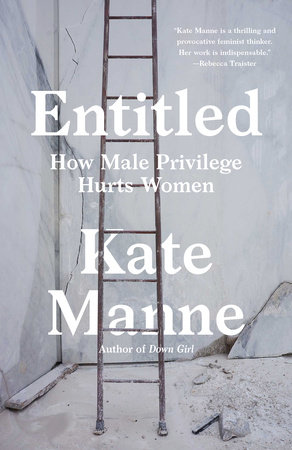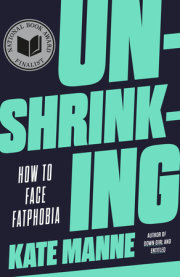oneIndelible—On the Entitlement of Privileged MenHe was a picture of entitlement. Brett Kavanaugh, fifty-three, was red-faced, petulant, and shouted most of his answers. Clearly, he thought the proceedings were beneath him, a travesty. It was September 2018, and Kavanaugh was being questioned by the Senate Judiciary Committee regarding allegations that he had sexually assaulted Dr. Christine Blasey Ford, fifty-one, when they were both in high school. At stake was not only Kavanaugh’s appointment to the U.S. Supreme Court; this was, more importantly, a tribunal on sexual assault, male privilege, and the workings of misogyny.
America did not pass the test. Despite highly credible evidence that Kavanaugh had indeed sexually assaulted a fifteen-year-old Ford some thirty-six years prior, Kavanaugh’s nomination to the Supreme Court was confirmed by a slim majority.
Ford testified that she had been attacked by Kavanaugh, who, together with his friend Mark Judge, had “corralled” her into a bedroom at a party in Maryland. Ford alleged that Kavanaugh had pinned her to the bed, groped her, and ground his crotch against her. She said he tried to remove her clothes and covered her mouth to prevent her from screaming. Ford said she was afraid that Kavanaugh would accidentally smother and kill her. She said that she managed to escape when Judge jumped on the bed, knocking the two of them over.
“Indelible in the hippocampus is the laughter,” said Ford—a professor of psychology—in describing the incident and its traumatic aftermath. But even for many of those who professed to believe her, Ford’s experience just did not matter enough to be worth depriving a man like Kavanaugh of his perceived due, given his background and reputation. And, of course, there were also people who refused to believe her, saying she was either lying or mistaken.
By the time the Kavanaugh hearings were front-page news, I had been thinking for quite some time about male privilege and the toll it takes on girls and women. The case seemed to encapsulate many of the social dynamics I’d been studying. It perfectly captured the concept of entitlement: the widespread perception that a privileged man is owed something even as exalted as a position on the U.S. Supreme Court. This is a perception that Kavanaugh himself shared, judging by his aggrieved, belligerent, and, at times, borderline unhinged conduct during the hearings. In contrast with Dr. Ford’s calm, tempered demeanor, and her poignant attempts to be “helpful” to the senators in responding to their queries, Kavanaugh was furious about being questioned. Especially, it might appear, when the questioner was a woman. Senator Amy Klobuchar asked him, in a now notorious exchange: “You’re saying there’s never been a case when you drank so much that you didn’t remember what happened the night before, or part of what happened?” “You’re asking about a blackout. I don’t know, have you?” Kavanaugh replied, in a tone both contemptuous and whiney.
The case also highlighted the phenomenon of himpathy: the way powerful and privileged boys and men who commit acts of sexual violence or engage in other misogynistic behavior often receive sympathy and concern over their female victims. Senator Lindsey Graham, fuming, epitomized such a himpathetic attitude:
Graham: [To Democrats] What you want to do is destroy this guy’s life, hold this seat open and hope you win in 2020. . . . [To Kavanaugh] You’ve got nothing to apologize for. When you see Sotomayor and Kagan, tell them that Lindsey said “hello,” because I voted for them. [To Democrats] I would never do to them what you’ve done to this guy. . . . [To Kavanaugh] Are you a gang rapist?
Kavanaugh: No.
Graham: I cannot imagine what you and your family have gone through. [To Democrats] Boy, you all want power. God, I hope you never get it. I hope the American people can see through this sham. . . . You had no intention of protecting Dr. Ford—none. [To Kavanaugh] She’s as much of a victim as you are. God, I hate to say it, because these have been my friends. But let me tell you, when it comes to this, you’re looking for a fair process? You came to the wrong town at the wrong time, my friend. Do you consider this a job interview?
Kavanaugh: If the advice and consent role is like a job interview.
Graham: Do you consider that you’ve been through a job interview?
Kavanaugh: I’ve been through a process of advice and consent under the Constitution, which—
Graham: Would you say you’ve been through hell?
Kavanaugh: I—I’ve been through hell and then some.
Graham: This is not a job interview.
Kavanaugh: Yes.
Graham: This is hell.
According to Graham, it was unconscionably hellish—and, beyond that, ridiculous—for a man in Kavanaugh’s position to have to respond to serious, credible accusations of sexual assault, and undergo a truncated FBI investigation, in order to ascend to one of the highest positions of moral authority in America. And Kavanaugh clearly shared, and was further emboldened by, Graham’s views here—not wasting the opportunity to indulge in self-pity. No comparable outpouring of feeling for Ford and her family was forthcoming from Graham, despite his giving lip service to the idea that she was “as much of a victim” as Kavanaugh in this process (referring to the supposed attempt on the part of Democrats to discredit Kavanaugh for political gain). “Miss Ford has got a problem, and destroying Judge Kavanaugh’s life won’t fix her problem,” Graham fulminated on Fox News, later.
Himpathy made Kavanaugh seem to Graham to be the real victim in all of this. And not confirming a man like Kavanaugh to the Supreme Court became tantamount to ruining his life, not just withholding an opportunity. It wasn’t only men like Lindsey Graham spouting this kind of rhetoric and casting such aspersions on Christine Blasey Ford, either; many of the naysayers were women, and included other senators, journalists, and laypeople.
Finally, the Kavanaugh case highlighted several aspects of misogyny’s nature and function. In my previous book, Down Girl, I argued that misogyny should not be understood as a monolithic, deep-seated psychological hatred of girls and women. Instead, it’s best conceptualized as the “law enforcement” branch of patriarchy—a system that functions to police and enforce gendered norms and expectations, and involves girls and women facing disproportionately or distinctively hostile treatment because of their gender, among other factors. The sexual assault of Christine Blasey Ford (about which, for the record, I believe her) would certainly fit this description, since girls and women are significantly likelier to be subject to assaults of this kind than are their male counterparts. In addition to this, misogyny is typically (though not invariably) a response to a woman’s violations of gendered “law and order.” The fact that Ford received abusive messages and death threats for speaking out about a powerful man’s mistreatment of her exemplifies such punishment.
In general, I think of misogyny as being a bit like the shock collar worn by a dog to keep them behind one of those invisible fences that proliferate in suburbia. Misogyny is capable of causing pain, to be sure, and it often does so. But even when it isn’t actively hurting anyone, it tends to discourage girls and women from venturing out of bounds. If we stray, or err, we know what we are in for. All the more reason, then, why Ford’s testimony was so courageous.
In contrast to misogyny, I take sexism to be the theoretical and ideological branch of patriarchy: the beliefs, ideas, and assumptions that serve to rationalize and naturalize patriarchal norms and expectations—including a gendered division of labor, and men’s dominance over women in areas of traditionally male power and authority. Though this book focuses more on misogyny than sexism, it’s important to recognize that the two typically work in concert.
Copyright © 2020 by Kate Manne. All rights reserved. No part of this excerpt may be reproduced or reprinted without permission in writing from the publisher.









